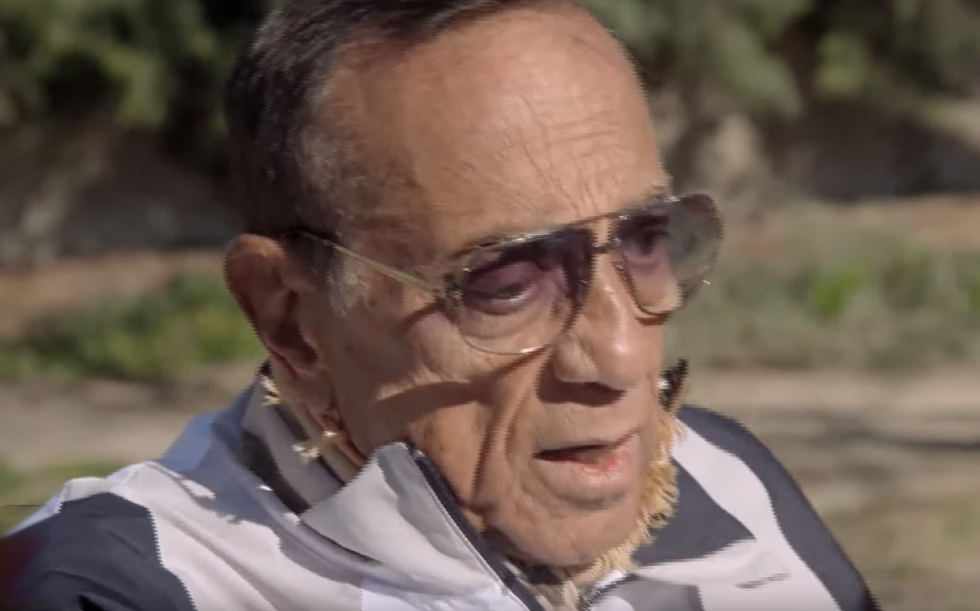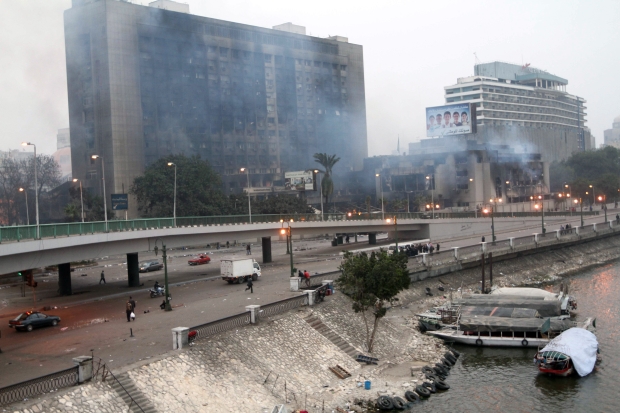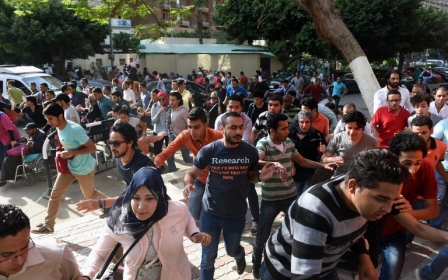Egypt asks Interpol to take Mubarak-era billionaire off watchlist

Egypt has asked for Interpol and the European Union to drop charges against Hussein Salem, a businessman ally of deposed president Hosni Mubarak once found guilty of corruption and money laundering.
Salem and his family gave up 75 percent of their wealth in August in a deal that allowed them to return to Egypt without facing prosecution.
Salem, who also holds Spanish citizenship, was arrested under an international warrant in 2011 in Spain, where he fled after the popular uprising that ended Mubarak's 30-year rule.
"The prosecution had sent instructions to take Salem and his family members off airport watchlists on Sept. 27 and asked the Interpol to take him off its Red Notice Wanted list today," justice ministry spokesman Khaled al-Nashar told Reuters.
Translation: “The first appearance of Hussein Salem after the reconciliation, with (TV host) Amr Adeeb on (TV channel) ON TV.”
The International Criminal Police Organisation (Interpol) is an intergovernmental agency designed to promote international cooperation in criminal investigations.
Nashar said Egypt also sent notice to Spain, Switzerland, and Hong Kong to take Salem off their watchlists and that of the European Union.
The actions will allow Salem and family members to return to Egypt, where he is seen as a symbol of the unrestrained corruption of the late Mubarak-era.
Hussein salem (L) with famous Egyptian pro-regime TV host Amr Adeeb.
An Egyptian court had sentenced Salem in absentia to seven years in jail and fines totalling more than $4bn in 2011 after convicting him of money laundering and profiteering.
He later faced corruption-related charges associated with gas exports to Israel but was cleared in 2014.
Salem was a major shareholder in East Mediterranean Gas (EMG). Egyptian opposition groups had long complained that EMG was selling gas at preferential prices to Israel and other countries, depriving Egypt of potential revenues.
Egypt's Illicit Gains Authority recovered 5.3bn Egyptian pounds ($597m) in the reconciliation deal with the Salem family.
Social media users were less than sympathetic however, with some mocking the billionaire when he said that he did not have a house in Egypt and would be forced to stay in expensive hotels.
Translation: “Hussein Salem: My family and I will stay in a hotel when we come back because we don’t have a house in Egypt. Unlucky, Hussein, this is the price of being an expat.”
The deal was part of a wider reconciliation effort with wealthy businessmen who fled Egypt after the uprising.
Salem’s notoriety in Egypt is matched only Ahmed Ezz, the billionaire steel magnate who had close ties to Gamal Mubarak and the then-ruling National Democratic Party.
The corruption of Egypt’s business elite was one of the causes of the 25 January 2011 revolution, meaning amnesties are always likely to prove controversial.
The NDP headquarters were famously burned during the uprising five years ago, but what is less well-known is that the headquarters of Ezz Steel – which effectively monopolises Egypt’s steel industry – was also stormed and burned down.
Salem’s gas deals with Israel and Ezz’s monopolization of steel are both sensitive issues in the country; Israel has fought three wars with Egypt, which is also the region’s top steel exporter, a source of national pride.
President Abdel Fattah el-Sisi has a tense relationship with the country’s business elite, accusing them of not investing enough of their money in the country, while they in turn have bemoaned the state’s lack of will to reform Egypt’s Kafkaesque business environment.
Ezz, for example, was denied permission from Egypt’s election authorities to run in the 2015 elections and was repeatedly fined millions in a slew of corruption cases both before and after the 2011 revolution and 2013 military coup.
Egypt’s economy is on life-support, a fact that may push the regime and the business elite closer together – or further apart.
New MEE newsletter: Jerusalem Dispatch
Sign up to get the latest insights and analysis on Israel-Palestine, alongside Turkey Unpacked and other MEE newsletters
Middle East Eye delivers independent and unrivalled coverage and analysis of the Middle East, North Africa and beyond. To learn more about republishing this content and the associated fees, please fill out this form. More about MEE can be found here.





